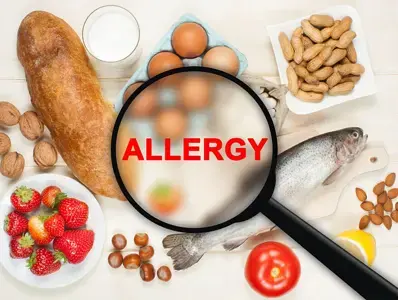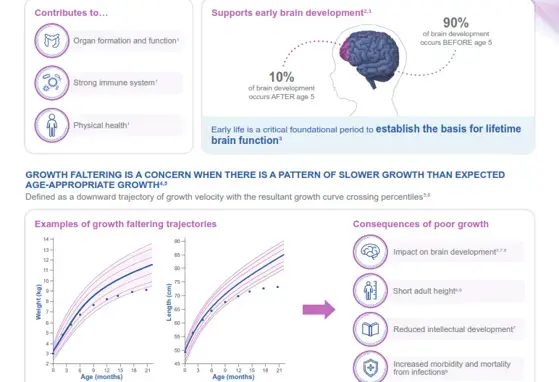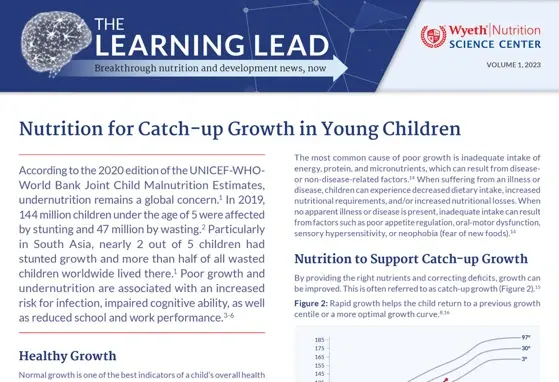[Guideline Summary] S3 guidelines on allergy prevention

Recommendations of the S3 guideline Allergy Prevention were revised to enable evidence-based and updated recommendations for preventing allergic diseases. They are for primary prevention of bronchial asthma, allergic rhinitis, food allergy and atopic eczema, applying to individuals at risk and those not at risk (unless explicitly stated otherwise. Below listed a brief summary.
Nutrition
- Maternal nutrition during pregnancy and lactation
- Avoidance of potent food allergens during pregnant or lactation should NOT be made for the purpose of allergy prevention
- Breastfeeding
- Exclusive breastfeeding should be recommended for the first 4 to 6 months of life if possible
- For mothers wishing to breastfeed, additional feeding of cow’s milk-based formula during the first days of life should be avoided
- Human milk substitute and cow’s milk substitutes in children at risk
- Soy-based baby foods should NOT be given for the purpose of allergy prevention
- Other animal milk including goat milk (not even as a basis for baby food), sheep or horse milk should NOT be given for the purpose of allergy prevention
- Cereal drinks should NOT be given for the purpose of allergy prevention
- Complementary food and transition to family nutrition
- Introduction of complementary food should start from the beginning of the 5th (at the earliest) to the beginning of the 7th month of life (at the latest) according to the willingness of the infants
- Dietary restriction should NOT be made because there is NO proof of preventive effect of dietary restriction by avoiding potent food allergens in the first year of life
- Heated-through (i.e. baked or hard-boiled) but not raw chicken eggs or scrambled eggs should be added in complementary food and given regularly in order to prevent chicken egg allergy
- Introduction and regular consumption of peanut products can be considered in an age-appropriate format (i.e. peanut butter) when complementary feeding is started for preventing peanut allergy in infants with atopic dermatitis in families with regular peanut consumption
- Need to first rule out peanut allergy, especially in infants with moderate to severe atopic dermatitis
- Body weight
- For reasons of asthma prevention, overweight or obesity in women before and during pregnancy as well as in children and adolescents should be avoided
- For reasons of asthma prevention, overweight or obesity in women before and during pregnancy as well as in children and adolescents should be avoided
Food supplements
- Supplementation of prebiotics ad probiotics
- Prebiotics and/or probiotics should NOT be given to pregnant women or infants for the purpose of allergy prevention (NOT even as part of baby milk formulas)
- Supplementation of vitamin D
- Vitamin D supplements should NOT be taken for preventing allergy in pregnant women and healthy infants or older children
- Supplementation of other vitamins
- Pregnant women should NOT avoid folic acid supplement for reasons of preventing allergy
- Pregnant women and healthy infants or older children should NOT take vitamin supplements for reasons of preventing allergy
- Supplementation of long-chain omega-3 fatty acids (EPA, DHA)
- Some studies revealed low serum levels of omega-3 long-chain omega-3 fatty acids in pregnant and lactating women as well as infants is related to higher risk of allergic diseases in the child, especially asthma and wheezing
- Some studies revealed low serum levels of omega-3 long-chain omega-3 fatty acids in pregnant and lactating women as well as infants is related to higher risk of allergic diseases in the child, especially asthma and wheezing
Allergen exposure/allergen-specific immunotherapy
- Pets
- Keeping cats or dogs should NOT be limited for the purpose of allergy prevention for families without a recognizably increased risk of allergy
- Families with an elevated risk of allergy or with children suffering from pre-existing atopic eczema should NOT start keeping a cat
- Families with an elevated risk of allergy should NOT be advised against keeping dogs
- Mites
- Interventions to lessen exposure of house dust mite allergens at home (i.e. using mite allergen-proof mattress covers) should NOT be used for the purpose of primary prevention
- Mite allergen reduction measures should be used in patients with existing mite allergy because of proven effectiveness
- Allergen-specific immunotherapy
- Allergy-specific immunotherapy for preventing pre-existing asthma should be recommended for patients with pre-existing allergic rhinitis/rhinoconjunctivitis
- Allergy-specific immunotherapy for preventing pre-existing asthma should be recommended for patients with pre-existing allergic rhinitis/rhinoconjunctivitis
Biodiversity and other factors
- Biodiversity
- All children including children at risk should be vaccinated as per the current recommendations
- It should be taken into account that children who were born through an elective caesarean section have a slightly higher risk of asthma when giving advice on the mode of delivery
- Skin barriers
- Moisturizing cream should be used regularly in infants and children with visibly dry skin
- Moisturizing cream should be used regularly in infants and children with visibly dry skin
Pollutants
- Tobacco smoke
- Both active and passive exposure to tobacco smoke should be avoided
- Mold exposure and humidity
- Indoor climate favoring growth of molds (i.e. high humidity, poor ventilation) should be avoided
- Indoor air pollutants
- Exposure to indoor air pollutants should be kept low
- Motor vehicle emissions
- Exposure to vehicle missions should be kept low
- Chlorinated pool water
- Regular visits to swimming pool to prevent allergies, rhinitis and eczema should NOT be discouraged
- Regular visits to swimming pool to prevent allergies, rhinitis and eczema should NOT be discouraged
Psychosocial factors
- NO practical recommendation can currently be provided based on available evidence
Link to the full article:
https://www.ncbi.nlm.nih.gov/pmc/articles/PMC8905073/
Reference:
Kopp MV et al. S3 guideline allergy prevention. Allergol Select. 2022;6:61-97.
Other articles that you might be interested in:
[Guideline summary] Updated EAACI guideline on early life food allergy prevention
WYE-EM-059-MAY-22
If you liked this post you may also like



[Science Update] Relationship between metabolites modulated by HMOs and reduced risk of LRTIs

[Science Update] Early-life gut ecology and reduced risk for reported LRTI